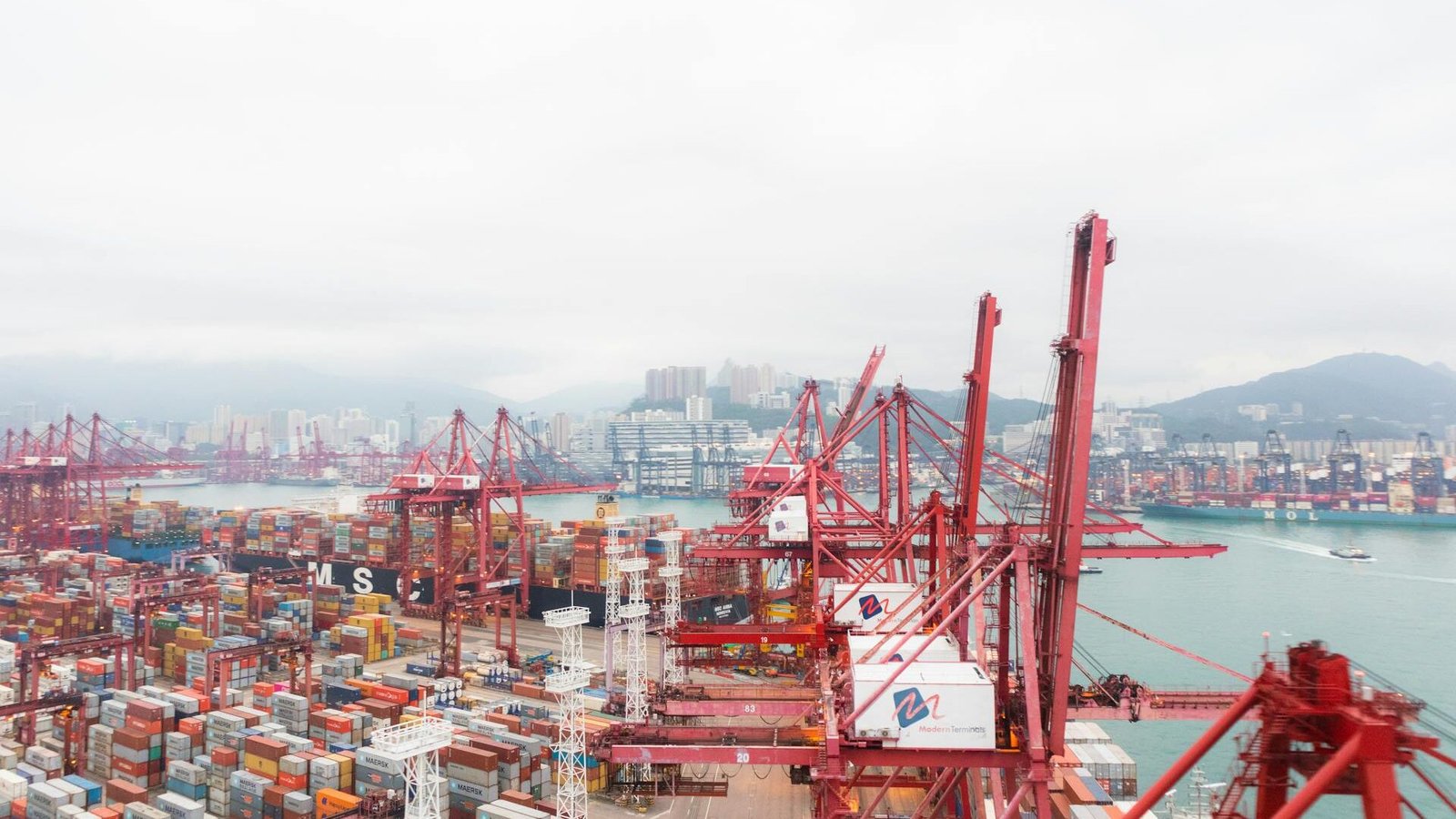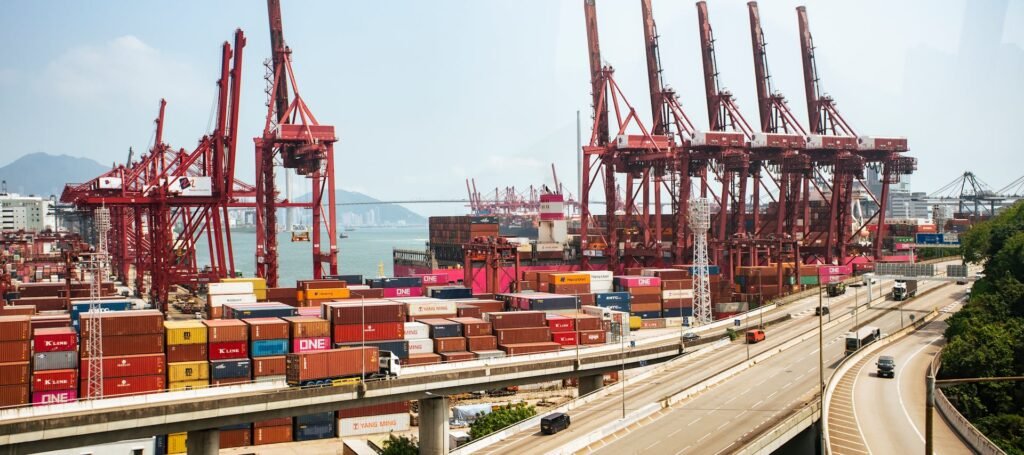
I. Introduction: Why Are Incoterms Crucial in International Trade?
In the vast and intricate landscape of international trade, Incoterms play a pivotal role, with DDP Incoterms standing out as a term of unique significance. Incoterms are trade rules formulated by the International Chamber of Commerce, and the latest version is Incoterms® 2020. These rules, much like lighthouses in the vast ocean of commerce, clearly demarcate the responsibilities, costs, and risk allocations between buyers and sellers, enabling the orderly conduct of the massive international trade activities.
Among the various Incoterms, DDP Incoterms is distinguished by imposing the greatest responsibilities on the seller. In numerous trade scenarios, when sellers aspire to have comprehensive control over logistics, allowing buyers to simply “wait for the goods to arrive,” DDP Incoterms often becomes the top choice. A profound understanding of DDP Incoterms is not merely about the successful conclusion of a single transaction but is also the key to reasonable cost control and effective risk prevention for every entity involved in international trade, be it a corporation or an individual.
II. In – depth Analysis of DDP Incoterms
1. Full Name and Definition
The full name of DDP Incoterms is Delivered Duty Paid. Under this term, the seller is tasked with transporting the goods to the destination specified by the buyer and assumes all costs and risks throughout the entire transportation process. This includes handling import and export customs clearance procedures, paying customs duties, and other various taxes and fees. These extensive responsibilities vividly illustrate the comprehensiveness and significance of the seller’s obligations under DDP Incoterms.
2. Core Responsibilities of the Seller
- Export Customs Clearance and Documentation: Under the framework of DDP Incoterms, the seller must meticulously handle the export customs clearance of the goods, carefully prepare and promptly submit all necessary documents to ensure the legal departure of the goods from the home country. This is a crucial starting point for the goods to embark on their international journey.
- International Transportation and Insurance: The seller needs to comprehensively arrange international transportation for the goods. Based on the characteristics of the goods and transportation requirements, the seller selects the most suitable mode of transportation and reliable carriers. Additionally, to safeguard the safety of the goods during the long – distance transportation, the seller should also consider purchasing appropriate transportation insurance. These operations are important responsibilities bestowed upon the seller by DDP Incoterms.
- Import Customs Clearance in the Destination Country and Payment of Duties/VAT: This part is the core of the seller’s responsibilities. After the goods arrive in the destination country, the seller is required to handle the complex import customs clearance procedures with professional capabilities and resources and pay all relevant customs duties, value – added tax (VAT), and other taxes and fees on time. This ensures the smooth entry of the goods into the destination market, which is a key responsibility that differentiates DDP Incoterms from other terms.
- Delivery of Goods to the Specified Destination: The seller should, with efficient logistics coordination capabilities, ensure that the goods are accurately delivered to the specific location designated by the buyer, such as the buyer’s warehouse. This reflects the strict requirements of DDP Incoterms for the seller’s transportation responsibilities.
- Assumption of Full – Course Risks: From the moment the goods are loaded until they are unloaded at the destination, any risks that may occur during this period are borne by the seller. This scope of responsibility once again highlights the high – risk nature that the seller undertakes under DDP Incoterms.
3. Core Responsibilities of the Buyer
- Timely Provision of Import – Required Information: In a transaction under DDP Incoterms, the buyer is obliged to promptly provide the seller with the relevant information necessary for the import of the goods, fully assisting the seller in smoothly completing customs clearance and other procedures. This is an important cooperative responsibility of the buyer in a DDP Incoterms transaction.
- Receipt of Goods at the Destination: When the goods arrive at the specified destination as agreed, the buyer is required to receive the goods in a timely manner in accordance with the contract, completing the transfer of ownership of the goods.
- No Assumption of Any Transportation/Customs Clearance Costs or Risks: Under the rules of DDP Incoterms, the buyer is not responsible for any costs associated with the transportation process or risks in the customs clearance process. This is a significant advantage that DDP Incoterms brings to the buyer.

III. Typical Process of DDP (Illustrated)
The typical process of DDP Incoterms can be concisely summarized as the following key steps:
Seller loads the goods → Export customs clearance → International transportation → Customs clearance at the port of destination (paying taxes) → Delivery to the destination → Buyer signs for receipt In this clear – cut process, the risk transfer point is clearly set after the goods are unloaded at the destination. Only after the unloading is completed does the risk of the goods formally transfer from the seller to the buyer. This regulation of the risk – transfer node is an important feature of DDP Incoterms in practical operations, clarifying the boundaries of risk – bearing between the buyer and the seller at different stages.
IV. Applicable Scenarios and Advantages of DDP
1. When to Choose DDP?
- Buyers Seeking Process Simplification (Especially in Cross – border Retail/B2B Small Orders): In the current international trade environment, especially for cross – border retail consumers or small – order customers in the B2B model, they often prefer a simple and convenient trading method. DDP Incoterms can precisely meet this need, allowing buyers to avoid the hassle of complex transportation and customs clearance procedures and truly achieve easy purchasing.
- Sellers with Customs Clearance Capabilities in the Destination Country (or Cooperative Agents): If a seller has a professional customs clearance team in the destination country or has established a solid cooperative relationship with a reliable customs clearance agent and can proficiently and efficiently handle customs clearance matters in the destination country, choosing DDP Incoterms can enable the seller to better control the entire logistics process, give full play to its own advantages, and ensure the smooth delivery of goods.
- High – value Goods Requiring Full – course Risk Control: When transporting high – value goods, to effectively protect the safety of the goods during transportation and customs clearance and avoid various unpredictable problems that may occur after the risk is transferred to the buyer, the seller usually chooses DDP Incoterms to comprehensively and effectively control the full – course risks of the goods and ensure their safe arrival at the destination.
2. Advantages for Sellers
- Enhanced Buyer Experience (“Worry – free Door – to – Door”): By providing services based on DDP Incoterms, the seller can create a “worry – free door – to – door” ultimate shopping experience for the buyer. This all – round service not only greatly improves the buyer’s satisfaction but also helps to establish a long – term, stable, and mutually – beneficial customer – seller relationship, laying a solid foundation for future continuous cooperation.
- Competitive Barrier: Offering Full – link Service Capability: The ability to skillfully use DDP Incoterms to provide services fully demonstrates that the seller has strong international logistics control capabilities and full – link service capabilities. In a highly competitive market environment, this can undoubtedly form a unique and powerful competitive advantage, enabling the seller to stand out from numerous competitors and attract more customers to choose to cooperate with it.
3. Advantages for Buyers
- Zero Customs Clearance Costs/Risks, Controllable Budget: Under the rules of DDP Incoterms, the buyer does not need to bear any customs clearance costs or risks, and all related expenses are handled by the seller. This allows the buyer to more accurately control the budget, avoiding additional costs due to customs clearance issues and making the procurement cost more transparent and stable.
- Avoiding Delays Caused by Unfamiliarity with Import Regulations: For many buyers, especially those who lack in – depth knowledge of the import regulations of the destination country, DDP Incoterms can help them effectively avoid customs clearance delays caused by unfamiliarity with the regulations. The seller, with its professional knowledge and experience, handles the customs clearance matters to ensure the timely and smooth arrival of the goods, safeguarding the buyer’s interests.
V. Potential Risks and Precautions of DDP
1. Sellers Must Be Vigilant!
- Fluctuations in Destination – country Taxes and Duties: In international trade, the customs duty policies of the destination country can change abruptly, much like unpredictable weather, leading to significant fluctuations in taxes and duties. For example, a country may suddenly increase the import tariffs on certain goods based on its own economic policy adjustments, which will directly increase the seller’s costs and severely erode the original profit margin. Under DDP Incoterms, sellers must always keep an eye on the tax and duty dynamics of the destination country to respond to potential risks.
- Complexity of Customs Clearance: The import regulations and customs clearance requirements of different countries vary widely, like a series of complex barriers. Sellers need to have an in – depth understanding of the relevant regulations of the destination country to pass customs smoothly. For instance, the EU has relatively strict management of VAT (Value – Added Tax) with detailed regulations and procedures, and the United States has special requirements such as FDA (Food and Drug Administration) certification for some products. If a seller is unfamiliar with these regulations in a DDP Incoterms transaction, it may lead to customs clearance obstacles and cargo detention, causing huge losses to the seller.
- High Costs: Under DDP Incoterms, the seller has to bear not only logistics costs but also the taxes and duties of the destination country. The superposition of these two types of costs may cause a significant increase in the total cost. If the seller fails to accurately estimate these costs when quoting, it may result in meager profits or even losses. Therefore, sellers must carefully calculate costs when choosing DDP Incoterms.
2. Key Contract Clauses
- Clear Definition of “Destination”: In a contract based on DDP Incoterms, the “destination” must be defined precisely, preferably down to the postal code. This seemingly minor detail is actually of great significance as it can avoid a series of disputes caused by unclear location and ensure that the goods can be accurately delivered to the location expected by the buyer.
- Specification of the Incoterms® Version: It is essential to clearly specify that the Incoterms® version used is 2020. Different versions of Incoterms may have differences in specific terms and interpretations. Clearly stating the version can ensure that both parties have a consistent understanding of DDP Incoterms and avoid misunderstandings and disputes caused by version confusion.
- Agreement on the Liability Party for Port Congestion Fees/Storage Fees: During the transportation of goods, due to various unforeseen factors, situations such as port congestion or the need for storage may occur. Therefore, it is crucial to agree in advance in the contract on the party responsible for port congestion fees and storage fees. This can effectively avoid disputes over cost – bearing issues later and protect the interests of both parties.
VI. DDP vs. Other Common Terms (Comparison Table)
| Term | Risk Transfer Point | Export Customs Clearance | Import Customs Clearance | Freight Bearing |
|---|---|---|---|---|
| DDP | After unloading at the destination | Seller | Seller | Seller |
| DAP | Before unloading at the destination | Seller | Buyer | Seller |
| CIF | On board at the port of shipment | Seller | Buyer | Seller |
| FOB | On board at the port of shipment | Seller | Buyer | Buyer |
The core difference is that DDP Incoterms is the only term under which the seller bears the import duties. This significant difference in liability allocation directly affects the cost and risk – bearing patterns of both the buyer and the seller during the trade process. When choosing a trade term, all parties must carefully weigh and fully consider their actual situations and interests, especially when it comes to DDP Incoterms, and comprehensively evaluate the opportunities and challenges it brings.
VII. Clarification of Common Misunderstandings
Misconception 1: “DDP Means Door – to – Door and the Seller Covers Everything!”
Although the seller assumes most of the key responsibilities under DDP Incoterms, it does not mean that the buyer can be completely uninvolved. In fact, the buyer needs to actively cooperate with the seller by providing customs clearance documents, such as import licenses and other important documents. If the buyer fails to provide these necessary documents in a timely manner, it is very likely to cause customs clearance delays, affecting the timely delivery of the goods and thus the smooth progress of the entire transaction. Therefore, cooperation between the buyer and the seller is of great importance in a DDP Incoterms transaction.
Misconception 2: “Since the DDP Cost Is Included, the Buyer Doesn’t Need to Pay.”
Although the DDP quotation clearly includes taxes and other fees, sellers usually, from a business operation perspective, reasonably incorporate these costs into the product pricing. So, in reality, the buyer ultimately bears these costs indirectly. When choosing to trade under DDP Incoterms, the buyer should clearly understand this point to make a more informed judgment in the procurement decision – making process.

VIII. Practical Suggestions
1. Essentials for Sellers
- Close Cooperation with Customs Clearance Agents in the Destination Country: To ensure the smooth progress of the customs clearance process under DDP Incoterms, the seller should actively establish a close cooperative relationship with customs clearance agents in the destination country. By maintaining close communication, the seller can promptly understand customs clearance dynamics, quickly identify, and resolve various potential problems, ensuring the smooth customs clearance of goods.
- Reserve 10 – 15% Budget to Cope with Tax and Duty Fluctuations: Considering the uncertainty of tax and duty policies in the destination country, which may fluctuate at any time, when quoting and planning the budget, the seller must reserve a budget space of 10 – 15%. This allows for a sufficient financial buffer in the face of sudden increases in taxes, avoiding a serious impact on profits due to cost overruns and ensuring financial stability in DDP Incoterms transactions.
2. Things Buyers Should Know
- Verify the Seller’s DDP Execution Ability (Especially in Emerging Markets): When choosing to trade under DDP Incoterms, the buyer needs to conduct a comprehensive and in – depth assessment of the seller’s DDP execution ability. Especially in some emerging markets, where the customs clearance and logistics environments may have more uncertainties, the seller’s execution ability becomes particularly crucial. Only by ensuring that the seller has sufficient capabilities to fulfill its responsibilities under DDP Incoterms can the smooth progress of the transaction be guaranteed and potential risks and losses be avoided.
- Retain the Right to Inspect Goods (Inspect Goods Timely After Arrival): When receiving the goods, the buyer must retain the right to inspect the goods. After the goods arrive, the buyer should promptly inspect the goods in accordance with the contract to carefully check whether the quality and quantity of the goods meet the requirements. This is not only the buyer’s right but also an important measure to protect its own interests, enabling the timely discovery of problems and negotiation with the seller to resolve them, thus avoiding potential disputes.
IX. Conclusion: DDP – A Double – edged Sword
For buyers, DDP Incoterms is undoubtedly one of the most worry – free trade terms. It can effectively help buyers avoid risks, allowing them to invest more energy and resources in the operation of their core businesses. However, for sellers, DDP Incoterms is like a double – edged sword. While it brings potential business advantages, it also comes with huge challenges. It requires sellers to have strong international logistics control capabilities, in – depth knowledge of destination – country regulations, and the ability to flexibly respond to various unexpected situations. If the seller fails to effectively cope with various risks and costs during the transportation process, it is likely to lead to cost overruns and operational difficulties.
Therefore, the golden rule is that small and medium – sized sellers should be particularly cautious when choosing DDP Incoterms, as they may not be able to bear the potential risks and cost pressures in terms of resources and capabilities. On the other hand, large enterprises or brand – name companies, with their abundant resources, professional teams, and rich experience, can use DDP Incoterms as a value – added service to enhance the customer experience and strengthen their market competitiveness. In conclusion, DDP Incoterms, like a double – edged sword, should be used with caution in the arena of international trade to ensure the smooth progress of transactions and the balance of interests between both parties, achieving a win – win situation.





